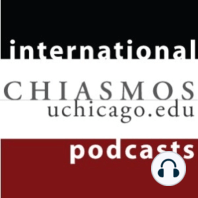43 min listen

"U.S.-Cuban Academic Relations Part I: The Politics of U.S.-Cuban Exchanges"
"U.S.-Cuban Academic Relations Part I: The Politics of U.S.-Cuban Exchanges"
ratings:
Length:
105 minutes
Released:
May 4, 2007
Format:
Podcast episode
Description
Wayne Smith, Center for International Policy and Louis Pérez, University of North Carolina-Chapel Hill.
U.S. and Cuban scholars involved in academic, scientific, and cultural research face significant difficulties in maintaining open and thorough dialogue with each other due to restrictions governing travel between the two countries. Such exchanges, however, hold the potential for improved interpretations of our economic, cultural, and historical ties, and ultimately for improved political relations. The aim of this conference was to convene scholars, practitioners, and members of civil society in order to foster a broad, interdisciplinary discussion on the current conditions of U.S.-Cuban academic exchange, the challenges that new governmental restrictions pose to academic research agendas, and the manners by which scholars may engage in projects related to Cuban history, economics, public policy, and culture. Sponsored by the Center for Latin American Studies.
U.S. and Cuban scholars involved in academic, scientific, and cultural research face significant difficulties in maintaining open and thorough dialogue with each other due to restrictions governing travel between the two countries. Such exchanges, however, hold the potential for improved interpretations of our economic, cultural, and historical ties, and ultimately for improved political relations. The aim of this conference was to convene scholars, practitioners, and members of civil society in order to foster a broad, interdisciplinary discussion on the current conditions of U.S.-Cuban academic exchange, the challenges that new governmental restrictions pose to academic research agendas, and the manners by which scholars may engage in projects related to Cuban history, economics, public policy, and culture. Sponsored by the Center for Latin American Studies.
Released:
May 4, 2007
Format:
Podcast episode
Titles in the series (100)
"Interactions Between the Press and Foreign Policy" by CHIASMOS: The University of Chicago International and Area Studies Multimedia Outreach Source [audio]